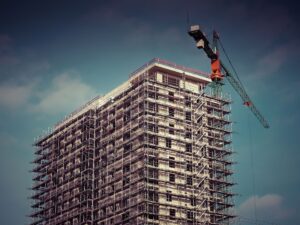The First Tier Tribunal is a legal body that handles disputes between leaseholders and landlords. As a leaseholder, it is important to understand the legal process of resolving disputes with your landlord. This guide will provide a comprehensive overview, including its role, the types of disputes handled, how to prepare for a hearing, what to expect during a hearing, the decision-making process, how to appeal a decision, common mistakes to avoid, and legal representation options.
Introduction to the First Tier Tribunal
The First Tier Tribunal (Property Chamber) is an independent legal body in the UK that handles disputes between leaseholders and landlords. It was established by the government to provide a more efficient and cost-effective way of resolving disputes than the traditional court system. It has jurisdiction over a wide range of disputes, including but not limited to, service charge disputes, lease extension disputes, and breaches of lease terms.
Understanding the Role of the First Tier Tribunal for Leaseholders
The role of the First Tier Tribunal is to provide a fair and impartial forum for resolving disputes between leaseholders and landlords. It is designed to be accessible and user-friendly, with the aim of resolving disputes in a timely and cost-effective manner. The panel is made up of 3 people typically, a lawyer, a surveyor and a lay person or member of the public.
Types of Disputes Handled by the First Tier Tribunal
The tribunal has jurisdiction over a wide range of disputes, including service charge disputes, lease extension disputes, breaches of lease terms, and disputes over the appointment of managing agents. It also has the power to make a wide range of orders, including orders for the payment of money, for the variation of leases, and for the appointment of a new manager.
How to Prepare for a Hearing
Preparing for a hearing is crucial to the success of your case. The first step is to gather all relevant evidence and documents, such as your lease, service charge invoices, and correspondence with your landlord. You should also prepare a witness statement that outlines the key facts of your case and any relevant legal arguments. It is important to ensure that all evidence is properly documented and presented in a clear and concise manner.
What to Expect During a First Tier Tribunal Hearing
During a hearing, you will be given the opportunity to present your case and any evidence you have gathered. The hearing will be conducted in a formal but relatively informal manner, and the tribunal panel will ask questions to clarify any points of contention. The hearing may last several hours or even a full day, depending on the complexity of your case.
The Decision-Making Process of the First Tier Tribunal
The First Tier Tribunal will make a decision based on the evidence presented during the hearing and any legal arguments made by both parties. The decision will be communicated to both parties in writing, along with the reasons for the decision. The decision is legally binding, and both parties are required to comply with the order.
How to Appeal a Decision
If you are unhappy with the decision of the First Tier Tribunal, you may be able to appeal the decision to the Upper Tribunal. However, you must have grounds for appeal, such as a legal error or a procedural irregularity. You should seek legal advice before pursuing an appeal, as the process can be complex and costly.
Common Mistakes to Avoid When Appearing Before the Tribunal
There are several common mistakes we have seen that leaseholders make when appearing before the First Tier Tribunal. One of the most common mistakes is failing to prepare adequately for the hearing. This can include not gathering all relevant evidence, failing to prepare a witness statement, or not understanding the legal arguments involved. Another common mistake we have seen is becoming too emotional during the hearing, which can negatively impact your case, it is best to remain composed and simply rely on the facts as presented.
Legal Representation for Leaseholders
Leaseholders are not required to have legal representation at the First Tier Tribunal, but it can be beneficial to have a professional advocate on your side. A legal representative can help you prepare your case, gather evidence, and present your case in a clear and concise manner. They can also advise you on the legal arguments involved and help you navigate the decision-making process.
In conclusion – The Benefits of Using the Tribunal to Resolve Leaseholder Disputes
The First Tier Tribunal is a valuable resource for leaseholders who are experiencing disputes with their landlords. It provides an efficient and cost-effective way of resolving disputes, with a focus on fairness and impartiality. By understanding the role of the First Tier Tribunal, preparing for a hearing, and avoiding common mistakes, leaseholders can increase their chances of a successful outcome. Legal representation can also be beneficial, particularly for complex cases.
If you are a leaseholder experiencing a dispute with your landlord, consider using the First Tier Tribunal to resolve your dispute. With the right preparation and legal advice, you can achieve a fair and satisfactory outcome.
Strangford Management have experience working with leaseholders and Landlords, utilising the The First Tier Tribunal (Property Chamber) to resolve disputes so contact us today for advice on how we can provide you with support.
Latest posts…
- EWS1 Form Explained: Hidden Requirements Your Surveyor Won’t Tell You
- NHBC Cover Explained: Your Essential Guide for Leaseholders (2025)
- Ministers Set £30bn Cladding Crisis Deadline for 2029
- Service Charge Disputes Made Simple: Your Rights as a Leaseholder
- Breaking: Leasehold Reform Scraps Two-Year Wait Rule From January 2025




